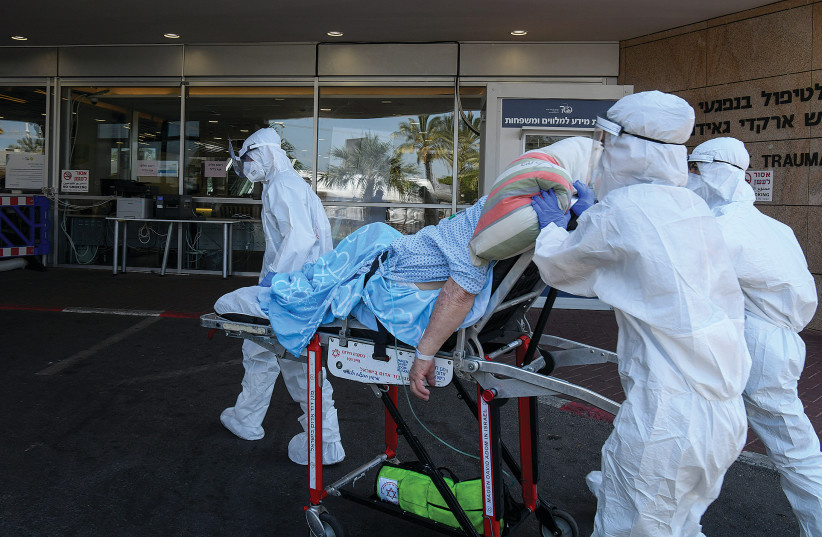A doctor at the Sheba Medical Center in Tel Hashomer is infected with the new coronavirus even though he recovered from it three months ago, Channel 13 reported. The doctor suffered from fever, cough and muscle pain when he tested positive for the virus in April, but recovered and tested negative in May and June. Earlier this month, he contacted a confirmed patient and subsequently tested positive for the virus. This is the second case at Sheba Medical Center in which a patient recovered from the virus and was reinfected. Another patient in the hospital recovered and returned to the hospital with severe lung inflammation. The cases are the latest in a series of suspected reinfection incidents that have raised questions about how long immunity against the virus lasts. In May, a 45-year period, an elderly woman from Jisr e-Zarka tested positive for coronavirus after being readmitted to Hillel Yaffe Medical Center in Hadera, with fever and chest pain. This occurred one month after she was discharged after recovering from the virus and testing negative twice. Several studies are trying to find out how long the protection provided by the antibodies will last, Dr. Maria van Kerkhove, technical leader COVID-19 of the World Health Organization, said last week, adding that some initial studies have found that “They may decrease after a couple of months.” With coronaviruses like SARS and MERS, people had some form of immunity for about a year or even longer, but with other regularly circulating human coronaviruses, the period of immunity is much shorter, Kerkhove said. These are “baseline data,” and more study is needed, he said. Preliminary studies in China, Germany, the United Kingdom, and elsewhere have found that patients infected with the new coronavirus produce protective antibodies as part of their immune system’s defenses, but these appear to last only a few months.
That poses major problems for developers of possible COVID-19 vaccines, experts say, and for public health authorities seeking to deploy them to protect populations from future waves of the pandemic. To be truly effective, COVID-19 vaccines “will need to provide stronger and longer-lasting protection … or they may need to be administered regularly,” said Stephen Griffin, associate professor of medicine at the University of Leeds. “And those things are not trivial.”
Celia Jean and Reuters contributed to this report.
